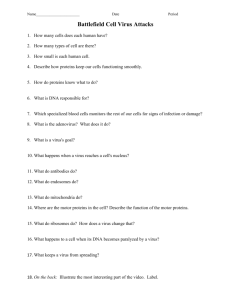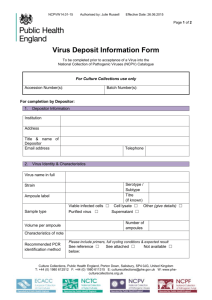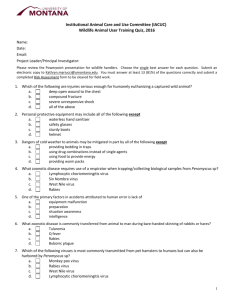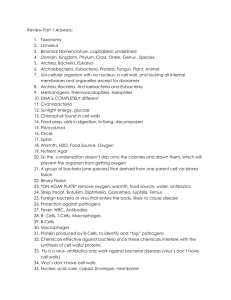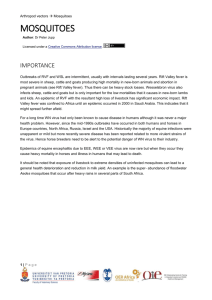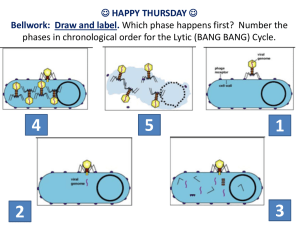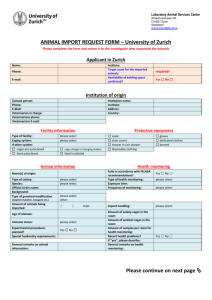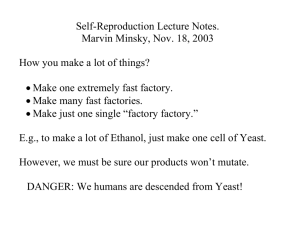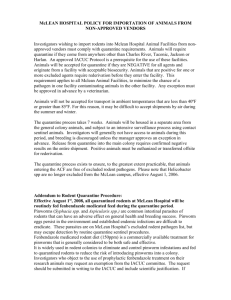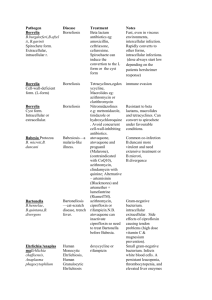Department of Molecular and Cellular Biology
advertisement
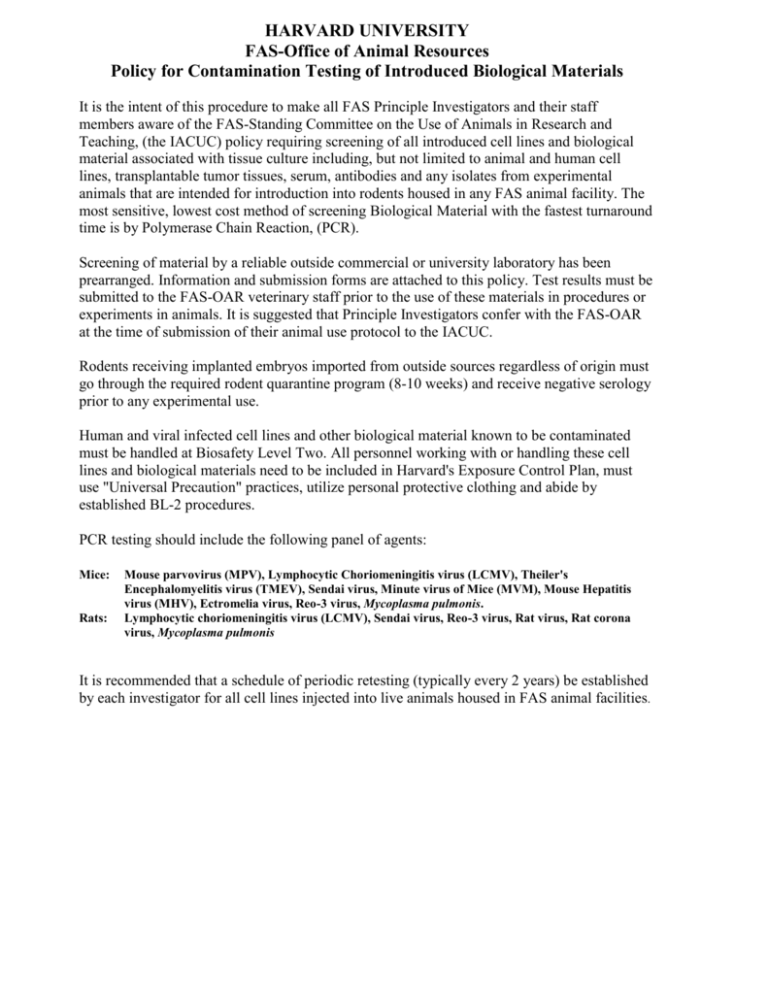
HARVARD UNIVERSITY FAS-Office of Animal Resources Policy for Contamination Testing of Introduced Biological Materials It is the intent of this procedure to make all FAS Principle Investigators and their staff members aware of the FAS-Standing Committee on the Use of Animals in Research and Teaching, (the IACUC) policy requiring screening of all introduced cell lines and biological material associated with tissue culture including, but not limited to animal and human cell lines, transplantable tumor tissues, serum, antibodies and any isolates from experimental animals that are intended for introduction into rodents housed in any FAS animal facility. The most sensitive, lowest cost method of screening Biological Material with the fastest turnaround time is by Polymerase Chain Reaction, (PCR). Screening of material by a reliable outside commercial or university laboratory has been prearranged. Information and submission forms are attached to this policy. Test results must be submitted to the FAS-OAR veterinary staff prior to the use of these materials in procedures or experiments in animals. It is suggested that Principle Investigators confer with the FAS-OAR at the time of submission of their animal use protocol to the IACUC. Rodents receiving implanted embryos imported from outside sources regardless of origin must go through the required rodent quarantine program (8-10 weeks) and receive negative serology prior to any experimental use. Human and viral infected cell lines and other biological material known to be contaminated must be handled at Biosafety Level Two. All personnel working with or handling these cell lines and biological materials need to be included in Harvard's Exposure Control Plan, must use "Universal Precaution" practices, utilize personal protective clothing and abide by established BL-2 procedures. PCR testing should include the following panel of agents: Mice: Rats: Mouse parvovirus (MPV), Lymphocytic Choriomeningitis virus (LCMV), Theiler's Encephalomyelitis virus (TMEV), Sendai virus, Minute virus of Mice (MVM), Mouse Hepatitis virus (MHV), Ectromelia virus, Reo-3 virus, Mycoplasma pulmonis. Lymphocytic choriomeningitis virus (LCMV), Sendai virus, Reo-3 virus, Rat virus, Rat corona virus, Mycoplasma pulmonis It is recommended that a schedule of periodic retesting (typically every 2 years) be established by each investigator for all cell lines injected into live animals housed in FAS animal facilities.
